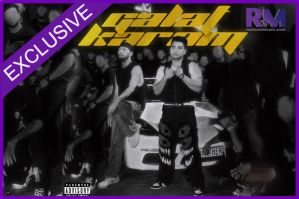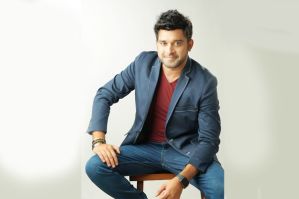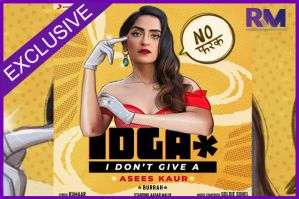Alka Yagnik - "The mood and soul of music is lost"

Born on 20 March 1966, Alka Yagnik is one of the most versatile singers in the industry today. Alka started crooning at the age of six for Calcutta Radio and was brought by her mother to Bombay where she was advised to wait till her voice matured. But her determined mother got a letter of introduction to Raj Kapoor from a Calcutta distributor, who sent a letter to noted producer Laxmikant. The music composer gave her two alternatives - an immediate start as a dubbing artist, or a later break as a singer, she chose the later.
Some of the popular songs at the start of her career where Mere Angane mein in 1981 and Ek do Teen from Tezaab in 1988, the later won her the Filmfare Best Female Playback Award.
The classically trained singer, who turned 43 on Friday, talks about her initial years as a singer, the golden era of music and the current �melody less' music industry in a conversation with Radioandmusic.com's Anita Iyer.
You won the first filmfare in the 1980s, do you consider it as turning point of your career?
I have sung �Mere angane mein' prior to that which became very popular. There have been lot of twists and turns and one of the first songs recorded - Mere angane mein fetched me recognition very early in my career. In those days the media glare was not so much and audiences knew me by my voice and not face. It was when I did live shows that I relaised how popular the tracks were. After the initial success, came qayamat se qayamat tak, ek do teen, which became an anthem followed by sajan, hum hai rahi pyaar ke and then there was no looking back.
You received your first Filmfare award for Ek do teen and then went on to win many more. How important are awards in a career according to you?
Awards are a recognition of your work; you get public credit for it in front of the entire world. But the effect of awards is very temporary. When the year is gone, it's forgotten. While it's a great thing to get an award, one shouldn't be dejected if one doesn't either, as work has to go on.
You entered the industry when there were two veteran singers, Ashaji and Lataji. Was it difficult to stand out?
I think it was the toughest time for female singers to enter the industry as Ashaji and Lataji were singing in full swing and Anuradha Paudwal and Kavita Krishnamoorthy had already made a place for themselves. Making a break at that time was close to impossible but that shows that if you are really talented and working on your music, there is no stopping you.
Do you feel a sense of competition from the young voices in the industry?
Today, there is a complete change in the scenario, there are reality shows and singers are made stars even before they deliver. It is instant stardom which goes as quickly as it comes, and every month we have a new singing star where the previous ones fade away. New voices are accepted wholeheartedly to the extent that even sub standard ones get recognition that they don't deserve. Due to technical advancements, singers' voice is worked on and the tonal quality is technically enhanced. Earlier, what we sang was the final output but today the voice is worked on after being recorded and although the singer has no knowledge of sur and taal, the final output sounds great.
You have been in the industry for over two decades. How has the industry changed?
There is too much of music in the market and much of it is sub standard. The music is very beat oriented and has stayed on because it sells. The actual melody or music of substance has taken a back seat, where melodious and traditional music is not considered �in' and termed as boring. There are too much of western influences where the lyrics are barely audible because there is too much of sound. I believe this is a temporary phase which will change and the strength of melody will come back.
The contemporary tracks aren't melodious?
Once in a while, there are some melodious numbers. However, the ratio of melodious songs has come down drastically.
You earlier mentioned that audiences knew you by your voice but today the signers are featured in the video? What do you think about it?
Our success was slow and steady and we became known by the mere strength of our singing. Nowadays, an artist is made into a star by interviews, exposure by media even before the artist has any work to his credit. But it is temporary stardom which comes and goes fast as well.
Do you see it as a welcome move with so many new voices in the industry?
The songs are popular but the audiences cannot relate with the singer. Singers no longer have their own identity like earlier, there was an instant recall the moment the singers opened their mouths. Now voices are lost and they sound similar to each other and it no longer matters who the singer is.
How has the way of recording changed over the years?
Now while recording, I do my portion and leave and it is later put together with the male voice. Earlier, when we used to do live recordings, the musicians and singers used to be present together while recording the track. The singers don't even come face to face with each other although their voices are there in a single track.
Do you enjoy such recordings?
While singing alongside male singers, you tend to outdo the other person and try to sing better than him and he in turn tries to outdo you It is like a competition and it helps the entire mood of the song. Today, technically we are very advanced but the mood and soul is lost.
What is your take on the diminishing classical genre in the industry?
Very few contemporary songs have classical colour in them and I believe, it should be used more often because it is our traditional music. There are a lot of western influences in the songs and classical ones are few are far between. We should not let our traditional music die down or get over shadowed by the western stuff.
You have some wonderful albums to your credit. Do you plan to launch any now?
I am thinking on the lines of doing a fusion album based on classical music with western influences. It is still in the making and it hasn't taken shape yet. I did some albums which did extremely well but that was the era of melody but now people just want to dance and jump. You have to move with times, so I would be launching an album which serves both the purpose with classical singing and rhythmic enough for people to jump on.
How has your journey from �choli ke peeche' to �Ringa ringa' been?
For Slumdog, when Elaji and I recorded for the song, we never thought it would be an instant hit. Rahman wanted this song to have a typical colour of �Choli ke peeche' and insisted on using the same singers as well. While recording the track, we were laughing at the funny lyrics and forgot about the track completely. We joked saying, �kya gana gaya humne, ringa ringa!' and then it went on to become so popular. Now when I do shows, people just want to listen to �ringa ringa' again and again.
We don't hear much of your songs these days?
After singing endlessly for 10 years, I have curbed my work. As it is, there are very few songs I am comfortable doing. Besides that, I think it is time for newcomers to sing and it is good to see them blossom. I have tied up with Zee for their Saregama Little champs which will take off in the latter part of the year.

















